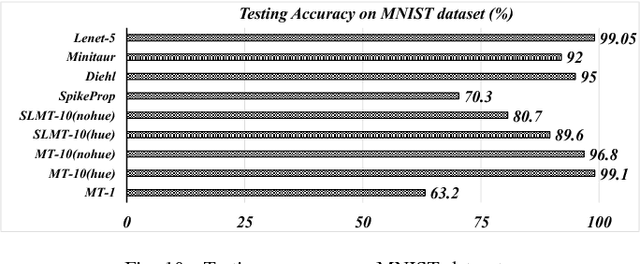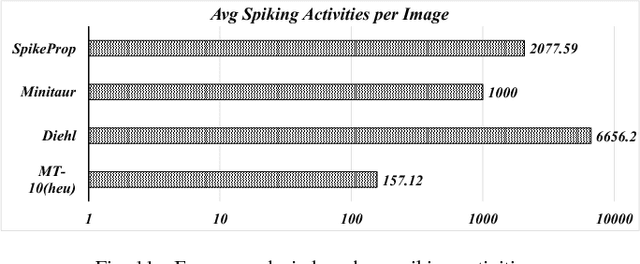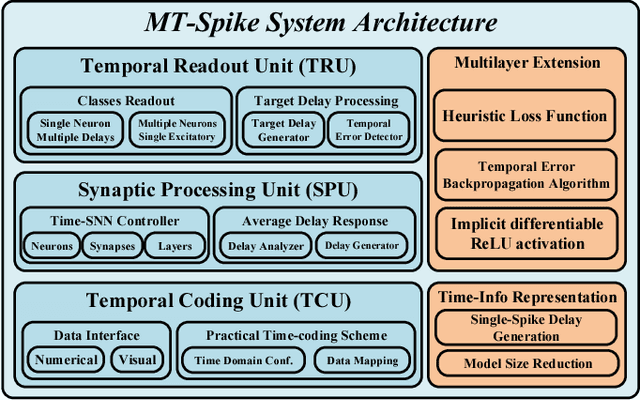Fuhong Lin
MT-Spike: A Multilayer Time-based Spiking Neuromorphic Architecture with Temporal Error Backpropagation
Mar 14, 2018



Abstract:Modern deep learning enabled artificial neural networks, such as Deep Neural Network (DNN) and Convolutional Neural Network (CNN), have achieved a series of breaking records on a broad spectrum of recognition applications. However, the enormous computation and storage requirements associated with such deep and complex neural network models greatly challenge their implementations on resource-limited platforms. Time-based spiking neural network has recently emerged as a promising solution in Neuromorphic Computing System designs for achieving remarkable computing and power efficiency within a single chip. However, the relevant research activities have been narrowly concentrated on the biological plausibility and theoretical learning approaches, causing inefficient neural processing and impracticable multilayer extension thus significantly limitations on speed and accuracy when handling the realistic cognitive tasks. In this work, a practical multilayer time-based spiking neuromorphic architecture, namely "MT-Spike", is developed to fill this gap. With the proposed practical time-coding scheme, average delay response model, temporal error backpropagation algorithm, and heuristic loss function, "MT-Spike" achieves more efficient neural processing through flexible neural model size reduction while offering very competitive classification accuracy for realistic recognition tasks. Simulation results well validated that the algorithmic power of deep multi-layer learning can be seamlessly merged with the efficiency of time-based spiking neuromorphic architecture, demonstrating great potentials of "MT-Spike" in resource and power constrained embedded platforms.
 Add to Chrome
Add to Chrome Add to Firefox
Add to Firefox Add to Edge
Add to Edge